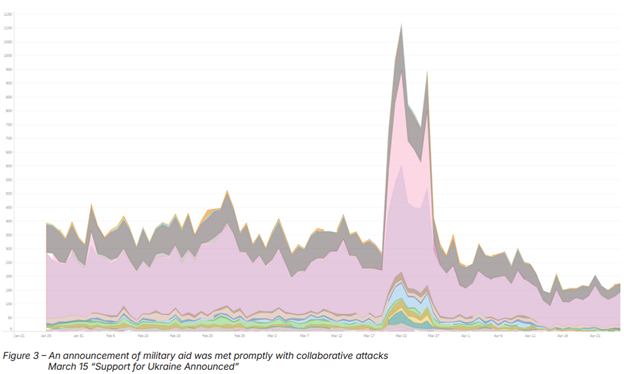
2024-9-28 03:21:27 Author: www.webroot.com(查看原文) 阅读量:5 收藏
In today’s world, both small businesses and everyday consumers face a growing number of cyber threats. From ransomware attacks to phishing scams, hackers are becoming more sophisticated. OpenText’s 2024 Threat Hunter Perspective sheds light on what’s coming next and how to protect yourself. Whether you’re running a small business or managing personal data at home, here’s what you need to know.
Nation-states are teaming up with cybercrime gangs
Cybercrime is no longer just about lone hackers. Now, nation-states like Russia and China are working with organized cybercrime groups to launch highly targeted attacks on businesses, governments, and even individuals.
- Russia has been particularly active, coordinating with groups like Killnet to attack critical infrastructure in countries supporting Ukraine.
- China is focusing on its political goals in the South China Sea, often collaborating with cybercrime rings like Storm-0558.
For SMBs: Be aware that even smaller businesses can be collateral damage in nation-state cyber wars, especially if you’re part of a critical supply chain. Strengthen your security measures to avoid becoming an easy target.
For consumers: Stay alert to potential phishing attacks or scams related to global events. Hackers often exploit moments of political tension or publicized aid efforts.
Timing is everything for hackers
One of the key insights from the report is how hackers choose the most disruptive moments to strike. Whether it’s during an election, the holiday season, a big sporting event, or a major business transaction, cybercriminals wait for the right moment to maximize damage.

For example, businesses supporting Ukraine saw a significant increase in attacks within 24-48 hours of announcing aid. This shows that hackers pay attention to the news—and use it to time their attacks for maximum chaos.
For SMBs: Be especially vigilant during peak business times or important events, like product launches, financial closings, or holiday seasons. These are moments when your business may be more vulnerable due to distractions or heavy workloads.
For consumers: During holidays or big events (like the Super Bowl or Black Friday), be cautious of unexpected emails, texts, or promotions. Scammers love to take advantage of busy times to trick people into clicking malicious links.
Top cyber threats you need to know about in 2024
The OpenText report highlights some of the most dangerous cyber threats we’ll be facing this year. Whether you run a small business or manage your own personal data, these threats are ones to watch out for:
- Killnet and Storm0558 (nation-state-linked groups)
- Akira and Black Basta (ransomware gangs targeting businesses of all sizes)
These groups are known for launching ransomware attacks, where they lock down your systems or steal data, demanding a hefty ransom to get it back.
For SMBs: Invest in ransomware prevention and always back up your data. Having regular backups means you can recover without having to pay a ransom.
For consumers: Keep personal backups of important files (photos, documents, etc.) on an external drive or in the cloud. That way, even if your devices get infected, you won’t lose everything.
What to expect this fall: U.S. election and beyond
With the U.S. presidential election in fall 2024, the cyber landscape is expected to get even more dangerous. Cybercriminals and nation-states alike will likely target key services and use misinformation to influence the public.
In addition, the report predicts an increase in attacks on critical infrastructure—things like power grids, water systems, and hospitals—throughout 2024, as part of the growing cyber arms race.
For SMBs: Be prepared for increased cyber activity around major political events, as hackers may use the chaos to launch broader attacks. Ensure your cybersecurity measures are updated and your employees are trained to spot phishing attempts.
For consumers: Be skeptical of political content online, especially as we approach the election. Deepfake videos and fake news are expected to rise, making it harder to tell fact from fiction.
AI: Both a help and a threat
AI is playing a bigger role in cybersecurity, but it’s also giving hackers new tools. Cybercriminals are using AI to create more convincing scams, such as deepfake videos and phishing emails that are harder to detect. But at the same time, AI can help businesses defend themselves by detecting threats faster and automating security responses.
For SMBs: AI tools can help boost your cybersecurity efforts by automating threat detection, but remember that AI is not a fix-all solution. Human oversight is still crucial to ensure your defenses are robust.
For consumers: Be wary of AI-driven scams. If you receive a message, video, or email that seems suspicious—even if it looks real—double-check before sharing any information or clicking on a link.
Practical security tips for SMBs and consumers
The report emphasizes simple yet effective security measures that can protect both businesses and individuals from cyber threats.
- Keep software updated: Whether you’re running a business or just protecting personal devices, always update your software and security tools. Patches often fix vulnerabilities that hackers could exploit.
- Use strong, unique passwords: Weak or reused passwords are an easy way in for cybercriminals. Use a password manager to create and store strong passwords.
- Enable two-factor authentication (MFA): For added protection, enable two-factor authentication on your accounts. This ensures that even if a hacker gets your password, they can’t access your account without a second step.
- Train employees on security basics: If you run a business, make sure your team is aware of common threats like phishing emails and knows how to report suspicious activity.
For SMBs: Consider a cybersecurity audit to identify any weaknesses in your system, and make sure your backup plans are up to date. Cyber insurance might also be worth looking into as an additional safety net.
For consumers: Keep an eye out for phishing scams, especially during high-risk times like holidays or after major news events. When in doubt, verify the source before clicking.
Download your copy of OpenText’s 2024 Threat Hunter Perspective today
![]()
About the Author
Tyler Moffitt
Sr. Security Analyst
Tyler Moffitt is a Sr. Security Analyst who stays deeply immersed within the world of malware and antimalware. He is focused on improving the customer experience through his work directly with malware samples, creating antimalware intelligence, writing blogs, and testing in-house tools.
如有侵权请联系:admin#unsafe.sh